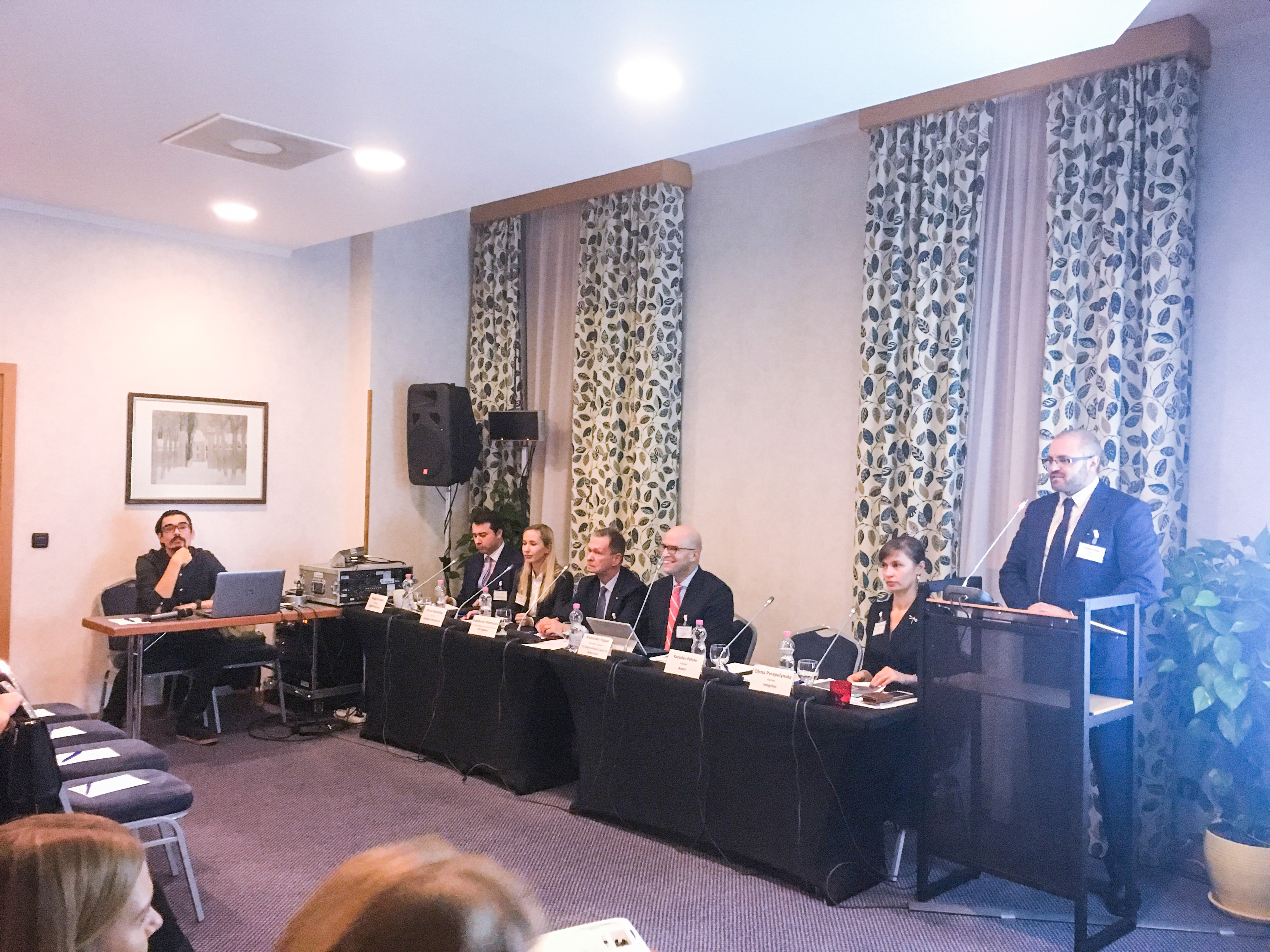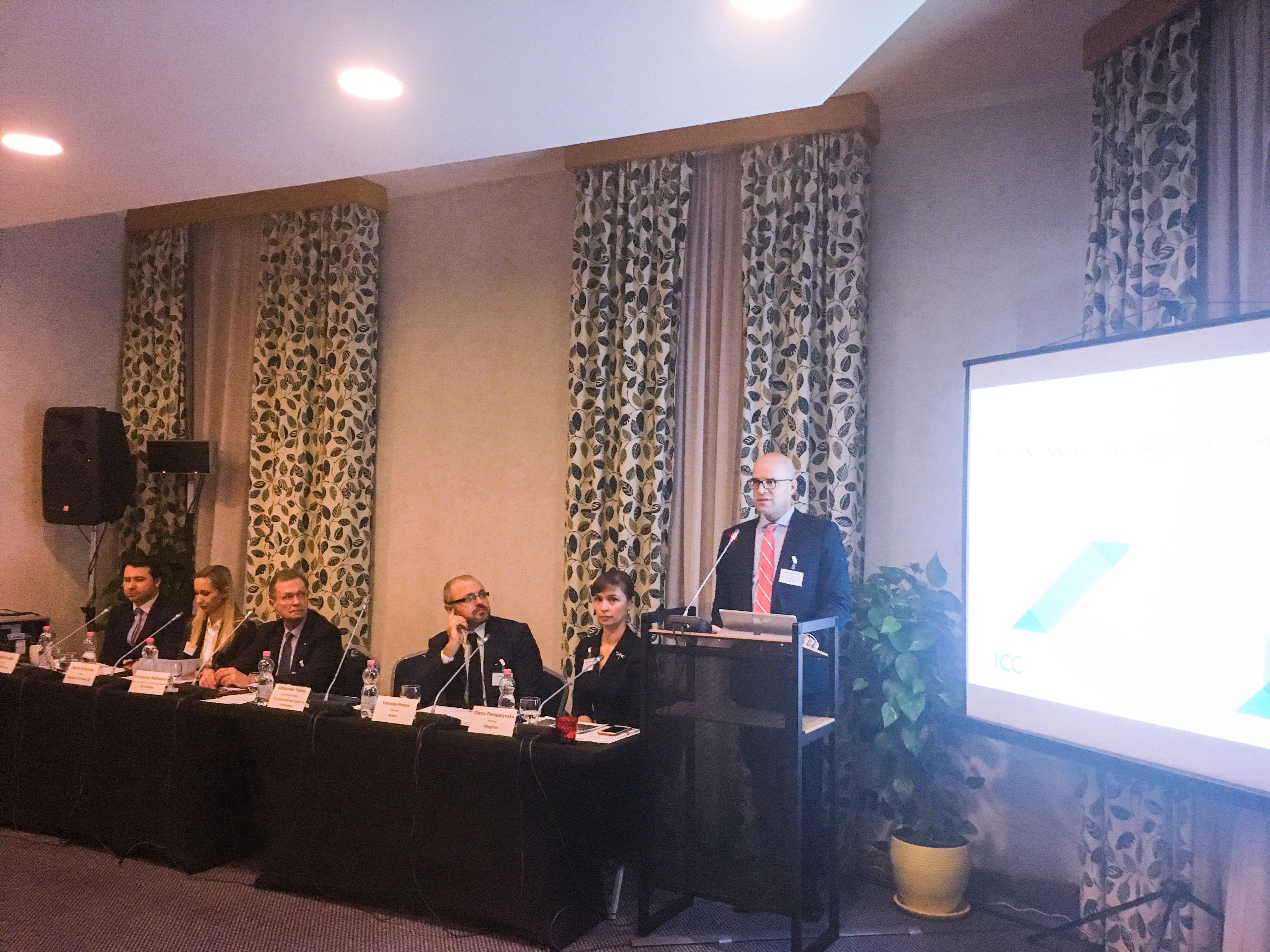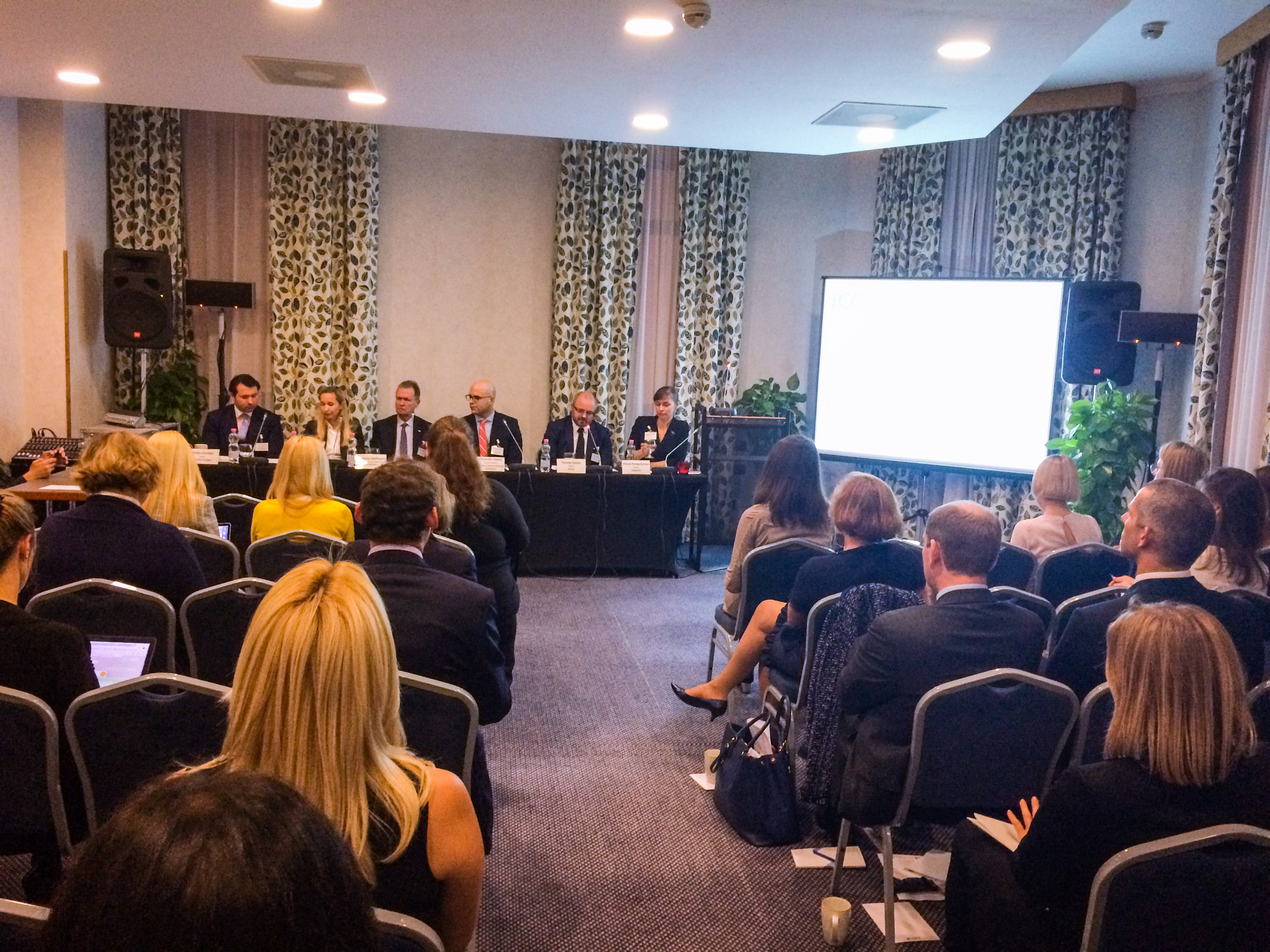2017 ICC RULES: recent innovations discussed in Kyiv
On 2 November 2017, the ICC International Court of Arbitration and ICC Ukraine jointly held an event in Kyiv, Ukraine to discuss recent amendments to the ICC arbitration rules
The Ukrainian arbitration community had an unprecedented opportunity to hear the insights directly from Alexander Fessas, the Secretary General of the ICC Court, with interventions from leading arbitration practitioners in the Ukrainian and global arbitration market.
First Vice-President and Secretary General of ICC Ukraine Volodymyr Mykhaylov delivered the welcoming remarks. The panel of the ICC officers and arbitration practitioners was moderated by Yaroslav Petrov, counsel at Asters.

Alexander Fessas explained the recent innovations in the arbitration rules. He covered the expedited procedure offered by the ICC since March 2017 for the cases where the amount in a dispute does not exceed USD 2 million. He also spoke about the growing level of transparency further to the ICC Court’s policy amendment to communicate reasons for its decisions at the party’s request. In addition, Alexander discussed a recent introduction of immediate dismissal of unmeritorious claims or defences. Finally, he highlighted the process of decentralization taking place in the ICC system with the two new case management teams to start operating soon.

During the course of the event, Sergiy Gryshko, partner of Redcliffe Partners, discussed the current issues of the speed and costs of arbitration. He analysed the efficiency of a number of innovations called on to improve the current state of affairs. He also discussed the sanctions of parties and arbitrators for delays.
The issue of transparency in arbitrator challenges drew particular attention of the panellists in light of the comparison of the arbitration rules presented by Maria Kostytska, partner at Winston & Strawn. Maria presented a comparative analysis of the ICC, LCIA, UNCITRAL and ICSID Rules, noting that the arbitration rules oriented for the investor-state arbitration have taken the lead in promoting transparency. She also noted the ICC’s efforts in providing practitioners with the information on the composition of the arbitral tribunals through an online data base. Maria mentioned GAR ART for being a unique research tool making the selection of arbitrators an easier task.
Finally, Maria invited the ICC to increase transparency at least in investor-state arbitrations by publishing more detailed information on the composition of the arbitral tribunals and motivated challenges decisions. She also invited the ICC to publish ‘sanitized’ decisions on challenges in all the cases to contribute to the development of jurisprudence on independence and impartiality, and increase the predictability as to the standards of disclosure.
Alexander Fessas responded that the resort to the ICC arbitration in investment cases is more often than not a conscious and prudent choice of the parties. Therefore, it is the market which will dictate the necessary changes as to the transparency within the framework of investment arbitration.
He further explained that the ICC supports the publication of the challenges decisions in a ‘sanitized’ form and the arbitration community should at some point expect the update of the policies to this regard.

Later, Olena Perepelynska, partner at INTEGRITES, led the discussion about the diversity and global outreach. She complimented the ICC on being the pioneers in addressing all kinds of diversity by declaring and implementing the policies to improve the present situation. Overall, Olena concluded that the institutions appear to be ready to adhere to diversity commitments, while it is the clients who are rather slow in accepting the changes.
This was followed by a discussion of the raison d’être behind the initiatives as to costs, time, efficiency and transparency in arbitration. The question raised by Eva Kalnina, counsel at Lévy Kaufmann-Kohler, invited the panel to consider whether the demand indeed comes from the end users of arbitration.
In response Sergiy Gryshko referred to the recent course of world events to show that what we have taken for granted for many years is in fact fragile. In his opinion, the same applies to arbitration. To maintain the system, the practitioners need to address the complaints from the system’s users. Sergiy praised the arbitral institutions for taking the lead to streamline this process.
The event took place ahead of the annual “KIEV ARBITRATION DAYS 2017: Think Big!” held under the auspices of the Ukrainian Bar Association.
Report prepared by Oksana Varakina, intern, Winston & Strawn Paris